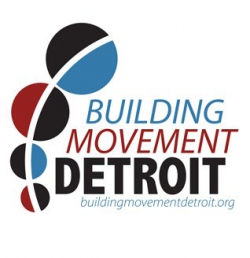Mar
12
2013

The City of Detroit has been in the news a lot recently, as Michigan Governor Rick Snyder decided to pass a controversial Emergency Manager law (a similar law was defeated by popular vote in November). The Emergency Manager law gives Michigan state officials the ability to appoint one person to take over almost all of city operations, and eliminates the powers of the publicly-elected City Council. Citing mounting debts and insufficient income, the state government says that Detroit’s dire financial straits necessitate bringing in an Emergency Manager- someone who will have unilateral authority to alter or eliminate collective bargaining agreements, cut city services, and lay off public employees. Since a similar provision went into effect in Pontiac, MI, the emergency manager there has privatized the Department of Public Works, outsourced many public services, and put every city-owned piece of property up for sale. All of this is done without any oversight from publicly elected city officials (though in some cases the mayor of cities with emergency managers remains on board in a consultant role).
With so many problems facing the City, is the City Manager law the right response? Or put another way, is it justified to eliminate the democratic voice of city residents so that none of their elected officials will have a say in the new order? Michigan has passed emergency manager provisions in five other cities, and now that Detroit joins them, more than half of Michigan’s African American population will be living under un-elected leadership. What does it mean that a majority of African American residents in Michigan will be under the rule of an emergency manager system? Most important, how do Detroit residents continue to have a meaningful voice in what happens to their City?
Many organizations throughout key Detroit neighborhoods have been organizing alternative ways to amplify the voices of Detroit residents. Building Movement Detroit and its partners are working to create a counter-balance so that the people who live in and love Detroit can speak up. In addition, Building Movement is compiling the “People’s Atlas”, a collection of maps, resources, and a documentary that will feature resident voices and offer their own narrative about the City. Using cartography, the People’s Atlas will also present a series of maps constructed by community members to highlight places of positivity in neighborhoods and to provide a directory of groups and organizations that are working within communities to move toward a better Detroit. Convenings that have been held to create these maps have already brought people together to organize around other pressing city concerns, such as land use and key transportation justice issues. Aaron Handelsman, BMP Detroit team member, commented on the team’s adopted vision for the work in Detroit- “Detroit is full of vibrant, resilient people who look out for each other and are committed to protecting the public assets and resources we share as a community. As neighbors and residents, we know what our districts need and we are working together to ensure that all of us—regardless of race, class or neighborhood—have a meaningful say in re-building our city”.
For more information about the structural causes leading to the Emergency Manager see http://michigancitizen.com/detroit-overcome/ and for more information on the People’s Atlas, visit www.buildingmovementdetroit.org
